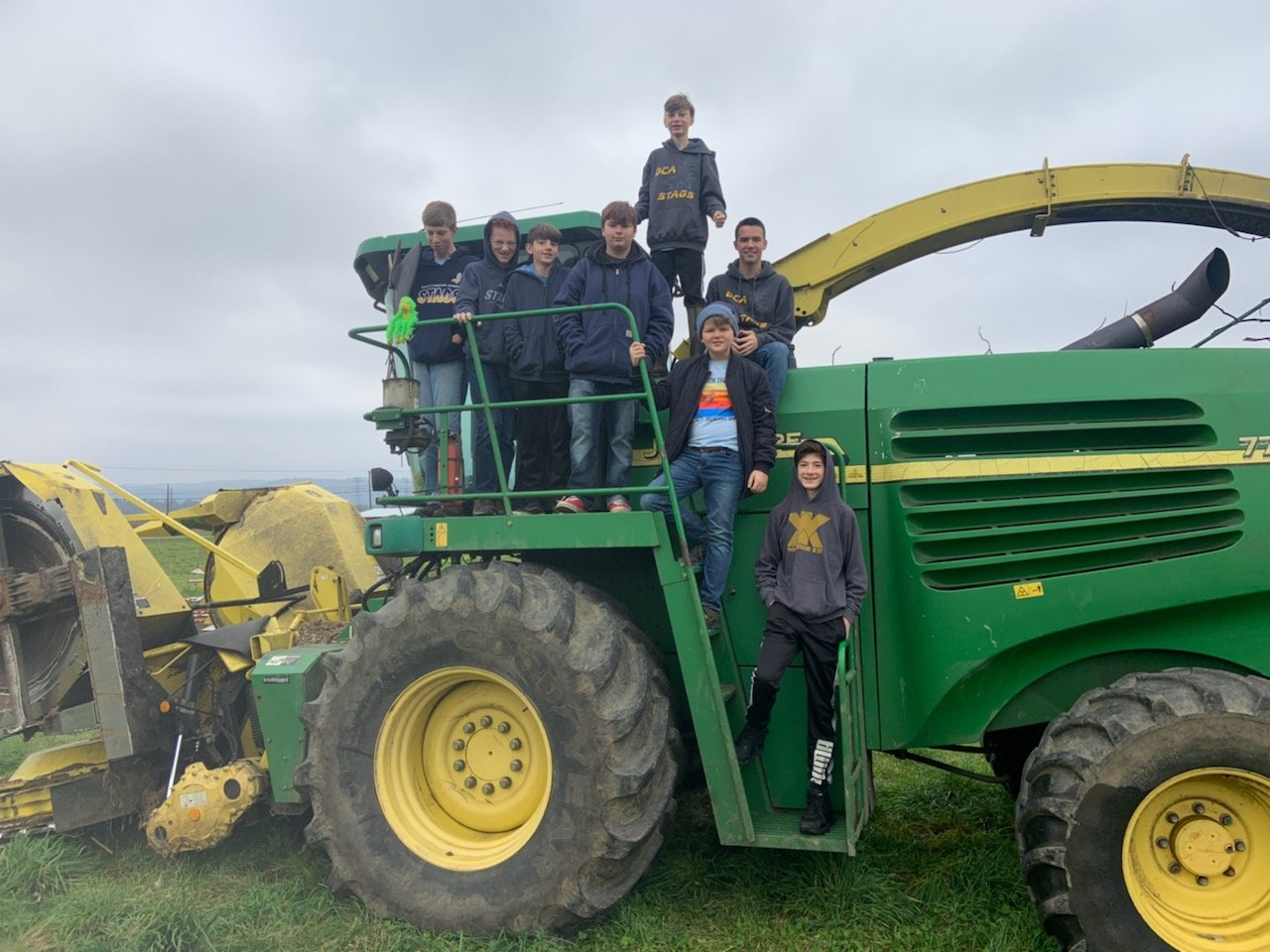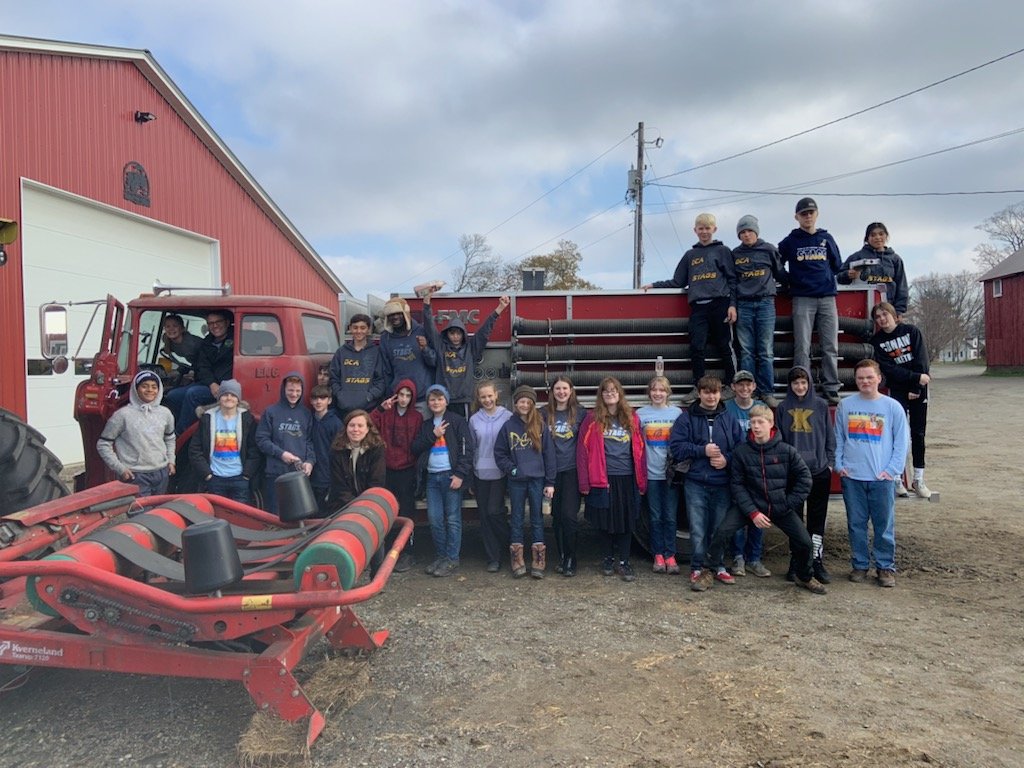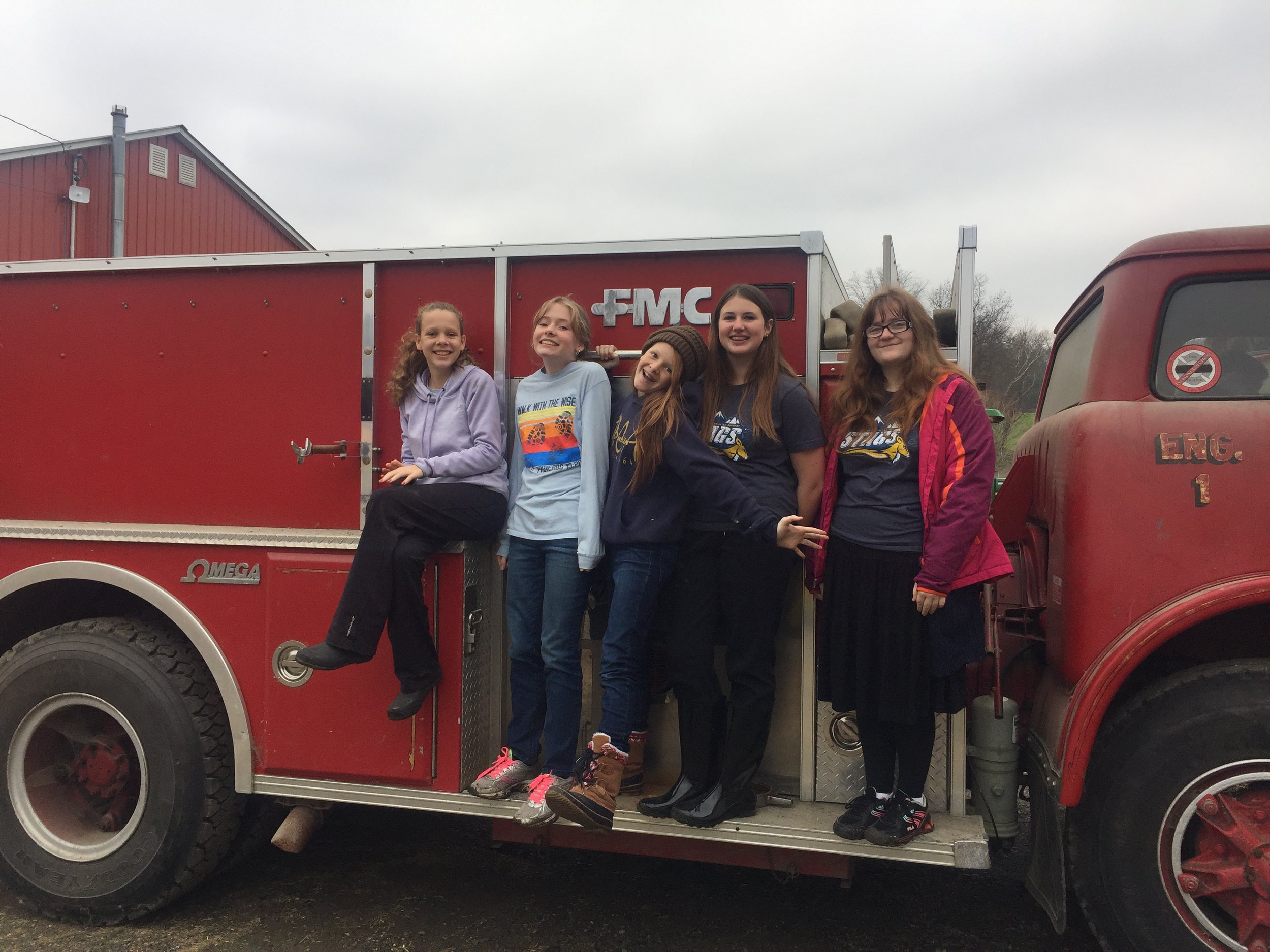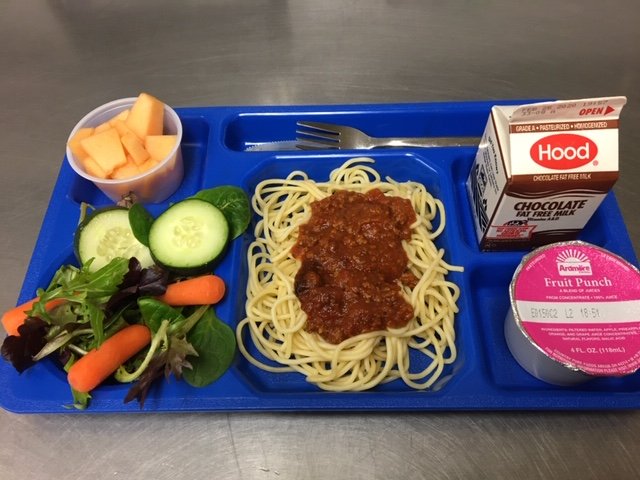If you’re from New England and read the news often, you have probably caught wind of how dairy farms in the region are struggling. And they’ve recently hit an even deeper blow when Danone announced they would stop purchasing dairy from over 90 Northeast dairy farms. In our role as a food distributor, we have a responsibility to our farmers to help them find solutions to problems like these.
When Pete Miller of Miller Farm (you might remember reading about them last year) came to Food Connects looking for ways to get his Vermont dairy into schools as another market for his high-quality product, we were a bit stumped at first. Schools often have milk available for students in single-serving small bottles. For many public schools, purchasing local milk every week just wasn’t financially feasible—making it a tough sell for Pete to invest in the special bottling equipment needed.
Enter Dublin Christian Academy (DCA). DCA is a local pre-K through 12th-grade private school in Dublin, New Hampshire. And a staple of most private schools is their school nutrition programs are often independently run, are not limited by the same USDA purchasing standards, and have larger budgets. When we approached DCA about purchasing Miller Farm milk, it was a no-brainer—the school itself used to be a dairy farm. And now, they have a standing order which makes creating the 8 oz single-serving bottles more sustainable for Pete. Knowing that he will have a consistent buyer for the products makes it easier to sell to other schools with less frequent purchasing schedules.
And since August 2021, DCA has purchased more than 2,600 8 oz bottles of Miller Farm milk!
We chatted with Bethany Paquin, Director of Development, to learn more about the school. We wanted to get to know DCA a little bit better and why they’re on board to help local dairy farmers like Pete.
What made you decide to work with Food Connects?
In 2020-2021 we weren’t able to offer a foods service program to our students because of COVID-19—we provided food to dorm students, but not our normal mass lunches. This gave us the opportunity to look at how our meal service worked. We wanted to offer different food choices and responsibly grown and raised products.
Our values align with “community,” and we love to source our food from farms and local producers. The campus was originally Staghead Farm, before the lands and buildings were donated to become a Christian school in 1964. At first, students were running the farm, which wasn’t sustainable for the school, but our early experiences have left us with very nostalgic feelings about that part of the school’s heritage.
How has the students’ response been to the Miller Farm milk? Are they excited that it is sourced locally?
The students are really enjoying having the local milk available. The younger students are especially enthusiastic about the maple and chocolate milk, which they haven’t had in the past.
Is there any feedback from the field trip to Miller Farm? What did the students learn?
Our seventh, eighth, and ninth-grade classes visited. The students are at a point where they are thinking more about where their food comes from and how it is produced. The students said they had a lot of fun and enjoyed learning about the milk bottling process and seeing all the animals, especially the cows that produce the milk. Silas Paquin, an eight grade student, said he drank a whole pint of milk and it was really good. Seventh-grader Sarah Ryan was amused by watching the chickens jump on the cows!



How has this benefitted your students?
There are certainly all the nutritional benefits. But it also develops connections for them in the community. More and more, the students get to recognize the businesses in the community where they get their food from—deepening their sense of place.
Anything else that you would like to share?
This past fall, we had an alumni dinner and featured some Food Connects producers, like Grafton Village Cheese. And this is just another opportunity to build some connections between these farms and the extended DCA family which includes alumni, former faculty, and former parents and grandparents.
Our parents are also really glad to see this partnership—knowing that their kids are getting good quality food from farms and businesses in the community that they trust. It’s a win-win!





